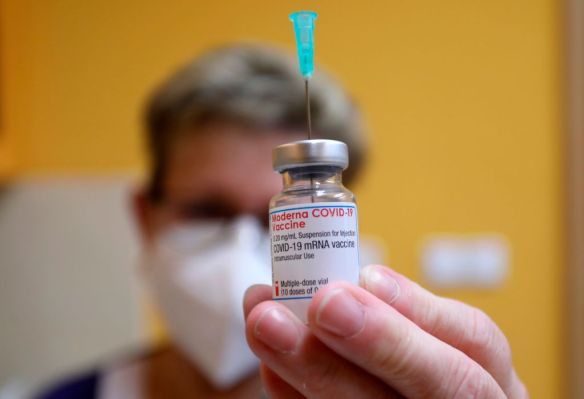Two Democratic senators introduced a bill Thursday that would strip away the liability shield that social media platforms hold dear when those companies boost anti-vaccine conspiracies and other kinds of health misinformation.
The Health Misinformation Act, introduced by Senators Amy Klobuchar (D-MN) and Ben Ray Luján (D-NM), would create a new carveout in Section 230 of the Communications Decency Act to hold platforms liable for algorithmically promoted health misinformation and conspiracies. Platforms rely on Section 230 to protect them from legal liability for the vast amount of user-created content they host.
“For far too long, online platforms have not done enough to protect the health of Americans,” Klobuchar said. “These are some of the biggest, richest companies in the world and they must do more to prevent the spread of deadly vaccine misinformation.”
The bill would specifically alter Section 230’s language to revoke liability protections in the case of “health misinformation that is created or developed through the interactive computer service” if that misinformation is amplified through an algorithm. The proposed exception would only kick in during a declared national public health crisis, like the advent of COVID-19, and wouldn’t apply in normal times. The bill would task the Secretary of the Department of Health and Human Services (HHS) with defining health misinformation.
“Features that are built into technology platforms have contributed to the spread of misinformation and disinformation, with social media platforms incentivizing individuals to share content to get likes, comments, and other positive signals of engagement, which rewards engagement rather than accuracy,” the bill reads.
The bill also makes mention of the “disinformation dozen” — just 12 people, including anti-vaccine activist Robert F. Kennedy Jr. and a grab bag of other conspiracy theorists, who account for a massive swath of the anti-vax misinformation ecosystem. Many of the individuals on the list still openly spread their messaging through social media accounts on Twitter, Facebook and other platforms.
Section 230’s defenders generally view the idea of new carveouts to the law as dangerous. Because Section 230 is such a foundational piece of the modern internet, enabling everything from Yelp and Reddit to the comment section below this post, they argue that the potential for unforeseen second-order effects means the law should be left intact.
But some members of Congress — both Democrats and Republicans — see Section 230 as a valuable lever in their quest to regulate major social media companies. While the White House is pursuing its own path to craft consequences for overgrown tech companies through the Justice Department and the FTC, Biden’s office said earlier this week that the president is “reviewing” Section 230 as well. But as Trump also discovered, weakening Section 230 is a task that only Congress is positioned to accomplish — and even that is still a long shot.
After a recent war of words with President Biden over its handling of Covid-19 misinformation, Facebook struck a cooperative if vague note on the new Democratic bill. “We believe clarification on the difficult and urgent questions about health related misinformation would be helpful and look forward to working with Congress and the industry as we consider options for reform,” Facebook VP of Public Policy Kevin Martin said.
While the new Democratic bill is narrowly targeted as far as proposed changes to Section 230 go, it’s unlikely to attract bipartisan support. Republicans are also interest in stripping away some of Big Tech’s liability protections, but generally hold the view that platforms remove too much content rather than too little. Republicans are also more likely to sow misinformation about the COVID-19 vaccines themselves, framing vaccination as a partisan issue. Whether the bill goes anywhere, it’s clear that an alarming portion of Americans have no intention of getting vaccinated — even with a much more contagious variant on the rise and colder months on the horizon.
“As COVID-19 cases rise among the unvaccinated, so has the amount of misinformation surrounding vaccines on social media,” Luján said of the proposed changes to Section 230. “Lives are at stake.”
